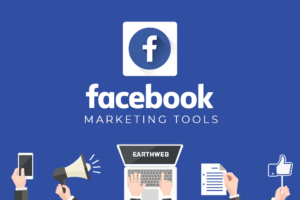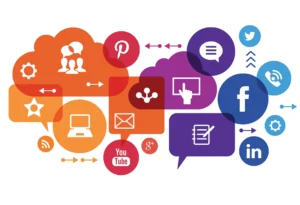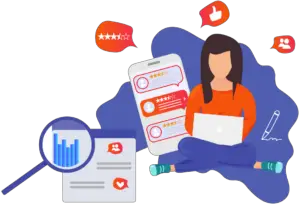What is Influencer Marketing
(What is Influencer Marketing) In today’s digital age, traditional marketing strategies are no longer as effective as they used to be. Consumers have become more discerning, and they often turn to the opinions and recommendations of those they trust. This shift has given rise to the phenomenon known as Influencer Marketing.
Introduction to Influencer Marketing
(What is Influencer Marketing) Influencer Marketing is a powerful strategy that leverages the popularity and credibility of individuals on social media platforms to promote products or services. These individuals, known as influencers, have the ability to sway the opinions and behaviors of their followers. In this article, we’ll explore the world of Influencer Marketing, its evolution, benefits, challenges, and how to create a successful campaign.
The Evolution of Influencer Marketing
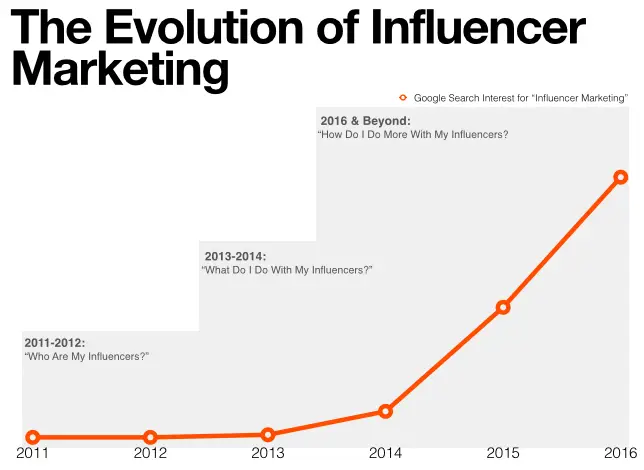
(What is Influencer Marketing) Influencer Marketing has come a long way since its inception. It started with celebrities endorsing products, but it has evolved to include micro-influencers—individuals with smaller but highly engaged followings. This shift has made Influencer Marketing more accessible to businesses of all sizes.
The Role of Influencers

(What is Influencer Marketing) Influencers are at the heart of Influencer Marketing. They are individuals who have built a dedicated and engaged following on platforms like Instagram, YouTube, TikTok, and blogs. Their recommendations and endorsements hold immense sway over their followers’ purchasing decisions.
Types of Influencers
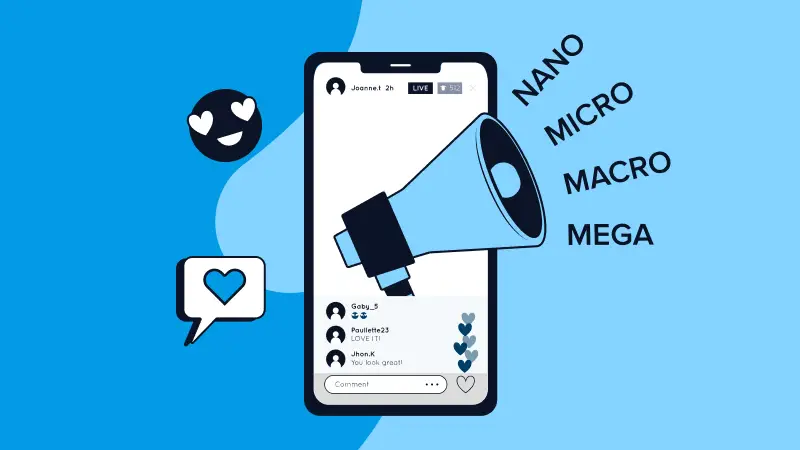
Influencers come in various forms:
- Celebrities: These are well-known figures from entertainment, sports, or other fields.
- Macro-Influencers: They have a substantial following but may not be household names.
- Micro-Influencers: They have smaller followings but often boast higher engagement rates.
- Nano-Influencers: These individuals have a very niche and hyper-localized following.
Benefits of Influencer Marketing

Influencer Marketing offers several advantages:
- Authenticity: Influencers provide authentic reviews and recommendations.
- Targeted Reach: You can choose influencers who align with your target audience.
- Engagement: Influencer content generates high levels of engagement.
- Cost-Effective: It can be more budget-friendly than traditional advertising.
How to Choose the Right Influencers
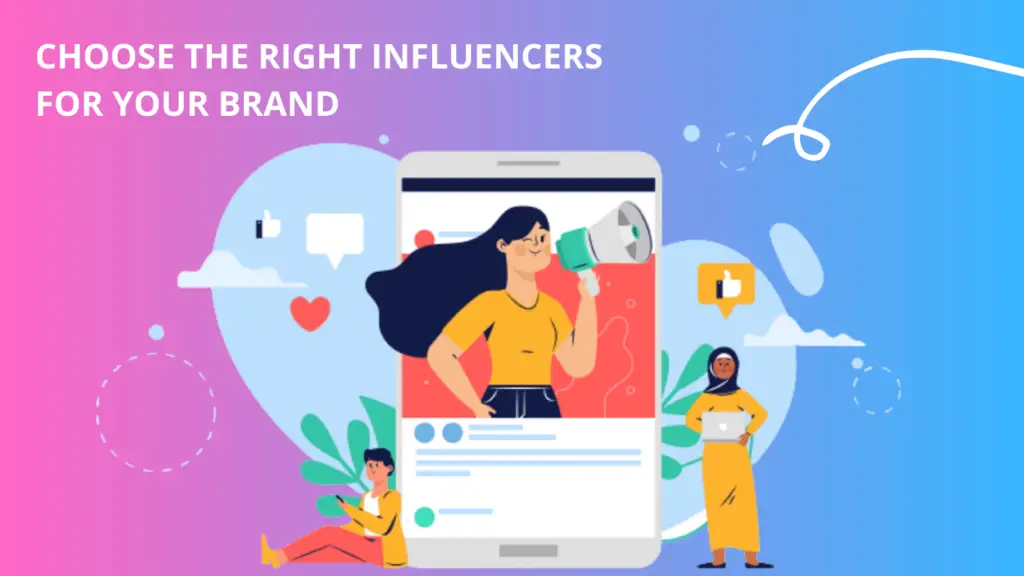
(What is Influencer Marketing) Selecting the right influencers is crucial. Consider factors like their niche, audience demographics, engagement rates, and previous brand collaborations. A good fit ensures the authenticity of your campaign.
Crafting an Influencer Marketing Strategy
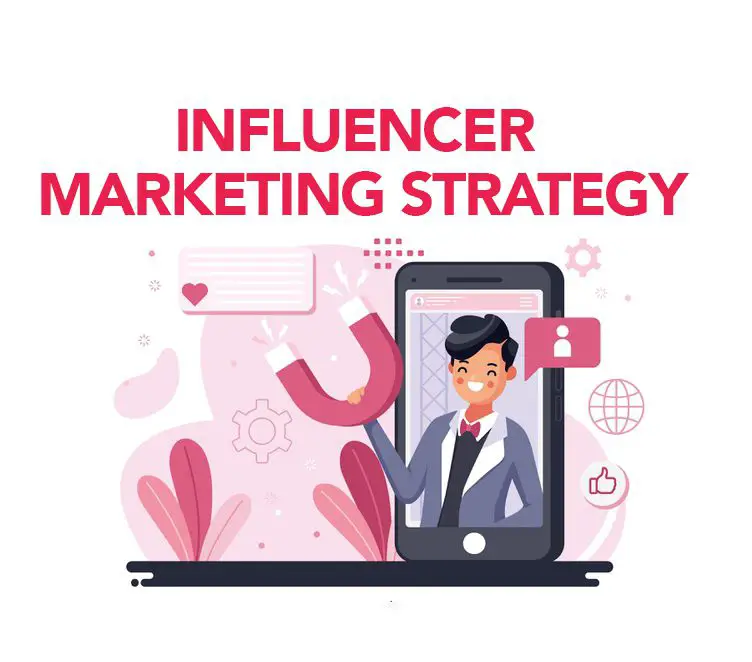
(What is Influencer Marketing) A well-thought-out strategy is essential. Define your goals, budget, and key performance indicators (KPIs). Develop a content plan and establish guidelines for the collaboration.
Measuring the Success of Your Campaign

(What is Influencer Marketing) Use analytics tools to track the performance of your Influencer Marketing campaign. Monitor metrics like reach, engagement, website traffic, and conversions to assess its effectiveness.
Common Challenges in Influencer Marketing
(What is Influencer Marketing) While Influencer Marketing can yield impressive results, it also comes with challenges like identifying fake influencers, managing influencer relationships, and ensuring content compliance with regulations.

While Influencer Marketing offers numerous advantages, it also presents its fair share of challenges. Recognizing and addressing these challenges is essential for a successful campaign:
1. Authenticity Concerns: Maintaining authenticity can be a challenge, especially when influencers collaborate with multiple brands simultaneously. Audiences may perceive content as disingenuous if it feels overly promotional.
2. Identifying Genuine Influencers: The rise of fake influencers and bots has made it difficult for brands to identify genuine influencers with real engagement. Due diligence is crucial to avoid wasting resources on fraudulent partnerships.
3. Managing Influencer Relationships: Building and maintaining positive relationships with influencers requires time and effort. Effective communication, mutual trust, and fair compensation are key factors in successful partnerships.
4. Content Quality Control: Balancing creative freedom for influencers with brand guidelines can be tricky. Brands must strike a balance between allowing influencers to showcase their unique style while ensuring content aligns with brand values.
5. Measuring ROI: Determining the return on investment for Influencer Marketing campaigns can be challenging. Brands need to establish clear KPIs and have the tools in place to track them accurately.
6. Legal and Regulatory Compliance: Different countries and regions have varying regulations regarding advertising and endorsements. Staying compliant with these laws is essential to avoid legal issues.
Case Studies: Successful Influencer Marketing Campaigns

(What is Influencer Marketing) Explore real-world examples of brands that have achieved remarkable success through Influencer Marketing. Learn from their strategies and outcomes.
Let’s take a closer look at a few examples of brands that have executed impactful Influencer Marketing campaigns:
1. Daniel Wellington: The watch brand Daniel Wellington leveraged the reach of micro-influencers on Instagram to showcase their products. By offering unique discount codes and encouraging user-generated content, they saw a significant boost in sales and brand awareness.
2. Glossier: Glossier, a cosmetics company, built a community of loyal customers by collaborating with beauty influencers. They encouraged user-generated content and engaged with their audience, creating a sense of belonging that set them apart in the beauty industry.
3. Gymshark: Gymshark, an activewear brand, partnered with fitness influencers to promote their products. The key to their success was choosing influencers who embodied the brand’s ethos and values, resulting in a dedicated following and impressive sales.
4. Airbnb: Airbnb launched a campaign called “Live There” by partnering with various influencers who showcased unique travel experiences. This campaign not only increased brand awareness but also encouraged travelers to explore local culture, aligning with Airbnb’s brand identity.
The Future of Influencer Marketing
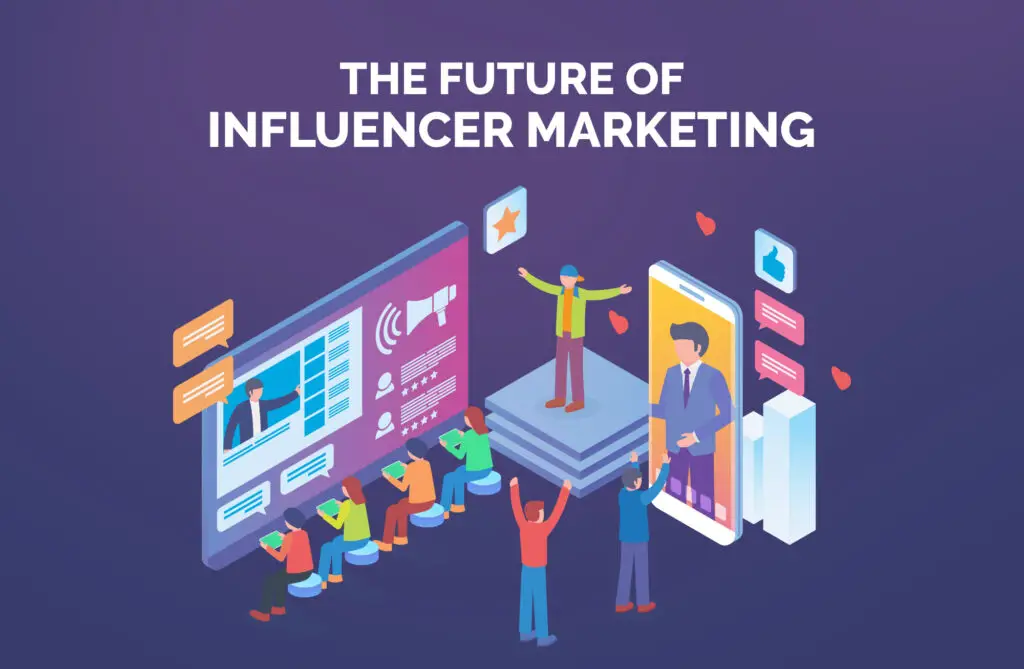
(What is Influencer Marketing) Influencer Marketing is constantly evolving. Stay updated on industry trends, emerging platforms, and changing consumer behaviors to remain competitive.
As we peer into the future of Influencer Marketing, it becomes evident that this marketing strategy is here to stay and will only continue to grow in importance. Here are some trends and developments that we can anticipate:
1. Rise of Micro and Nano-Influencers: While celebrities and macro-influencers will remain relevant, businesses will increasingly turn to micro and nano-influencers. Their niche audiences and high engagement rates make them valuable assets for hyper-targeted campaigns.
2. Video Content Dominance: Video content, especially on platforms like TikTok and YouTube, will continue to gain traction. Influencers who excel in creating engaging video content will be in high demand.
3. Ephemeral Content: The popularity of Stories on platforms like Instagram and Snapchat will persist. Brands will harness the fleeting nature of Stories to create urgency and excitement around their products.
4. Authenticity Over Glamour: Authenticity will remain a cornerstone of Influencer Marketing. Audiences appreciate genuine recommendations and real-life experiences over overly polished and promotional content.
5. Enhanced Analytics: The measurement and analysis of Influencer Marketing campaigns will become even more sophisticated. Brands will rely on advanced analytics tools to track attribution, customer journeys, and ROI.
6. Regulation and Transparency: Governments and social media platforms will continue to tighten regulations around influencer partnerships and disclosures. Ethical practices and transparency will be non-negotiable.
7. Diversification of Platforms: Brands will diversify their influencer partnerships across various platforms to reach different audience segments. Emerging platforms will present new opportunities for experimentation.
8. Immersive Experiences: Augmented reality (AR) and virtual reality (VR) will find their place in Influencer Marketing. Influencers will create immersive experiences that allow audiences to interact with products virtually.
Ethical Considerations in Influencer Marketing
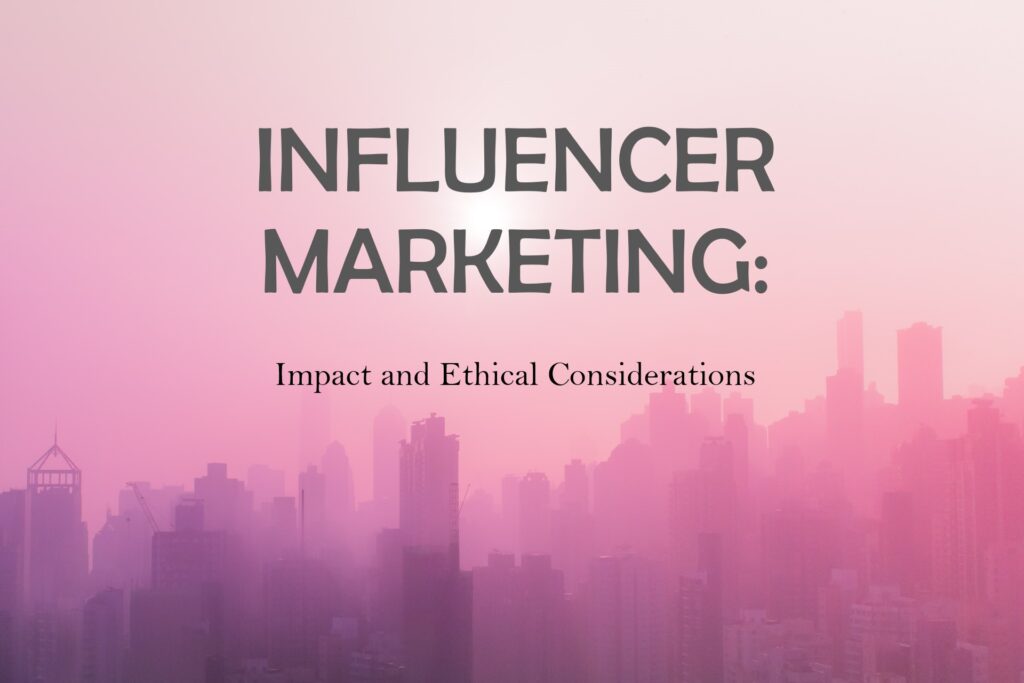
(What is Influencer Marketing) Maintaining transparency and ethical practices is vital in Influencer Marketing. Disclose sponsored content, respect audience trust, and adhere to advertising regulations.
With the growing influence of Influencer Marketing comes an increased responsibility to maintain ethical standards. It’s crucial for brands and influencers to adhere to the following ethical considerations:
1. Transparency: Always disclose paid partnerships and sponsored content to maintain trust with your audience. Use clear and unambiguous language.
2. Honesty: Provide honest and unbiased reviews and recommendations. Authenticity is key to building long-term relationships with your audience.
3. Respect for Audience: Treat your audience with respect and avoid content that may be offensive, controversial, or harmful.
4. Adherence to Regulations: Stay informed about advertising regulations and guidelines in your region. Comply with these regulations to avoid legal repercussions.
5. Data Privacy: Handle audience data with care and respect for privacy regulations. Ensure that you have the necessary permissions to collect and use data.
The Road Ahead for Influencer Marketing
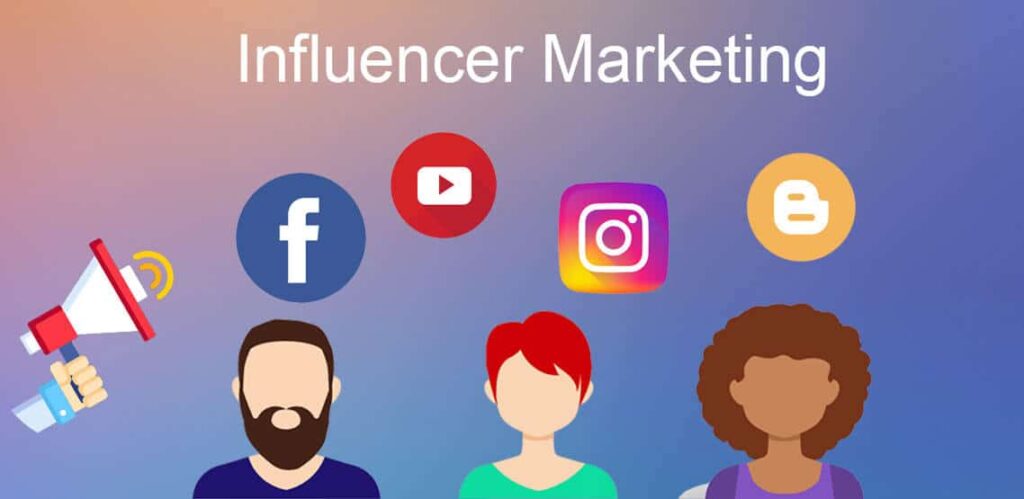
(What is Influencer Marketing) Influencer Marketing continues to evolve as technology, social media platforms, and consumer behaviors change. Staying ahead of the curve is essential for brands looking to make the most of this dynamic strategy:
1. Emerging Platforms: Keep an eye on emerging social media platforms and trends. Early adoption can give your brand a competitive advantage.
2. Data-Driven Decisions: Leverage data analytics to make informed decisions. Understanding your audience’s preferences and behaviors is crucial for targeting the right influencers and crafting effective campaigns.
3. Agility and Adaptability: Be prepared to adjust your strategies as the landscape evolves. What works today may not work tomorrow, so flexibility is key.
4. Long-Term Relationships: Building long-term relationships with influencers can lead to more authentic and sustainable campaigns. Cultivate partnerships that go beyond one-off collaborations.
5. Storytelling: Storytelling remains a powerful tool in Influencer Marketing. Encourage influencers to tell compelling stories that resonate with your brand and audience.
Conclusion
(What is Influencer Marketing) Influencer Marketing has revolutionized the way businesses connect with their audience. It offers authenticity, engagement, and targeted reach. To succeed in this dynamic landscape, choose your influencers wisely, create a robust strategy, and measure your campaign’s impact. With ethical practices and a finger on the pulse of industry trends, your brand can thrive in the world of Influencer Marketing.
Influencer Marketing has redefined the way businesses connect with their target audience. Its ability to deliver authenticity, engagement, and targeted reach makes it an indispensable tool in the modern marketing toolkit. By carefully selecting the right influencers, crafting compelling strategies, and adhering to ethical standards, businesses can navigate the ever-evolving landscape of Influencer Marketing with confidence.
As you embark on your Influencer Marketing journey, remember that the key to success lies in understanding your audience, being authentic, and staying attuned to emerging trends. With a well-planned and ethical approach, you can harness the power of influencer partnerships to drive your brand’s success.
FAQs
1. Are influencers only celebrities? No, influencers come in various categories, including micro-influencers and nano-influencers.
2. How can I measure the ROI of an Influencer Marketing campaign? You can track metrics like engagement, website traffic, and conversions to assess the campaign’s success.
3. What are some ethical considerations in Influencer Marketing? Disclose sponsored content, respect audience trust, and adhere to advertising regulations.
4. Can small businesses benefit from Influencer Marketing? Yes, micro-influencers and nano-influencers make it accessible for businesses of all sizes.
5. What does the future hold for Influencer Marketing? Influencer Marketing will continue to evolve, with emerging platforms and changing consumer behaviors shaping its future.


